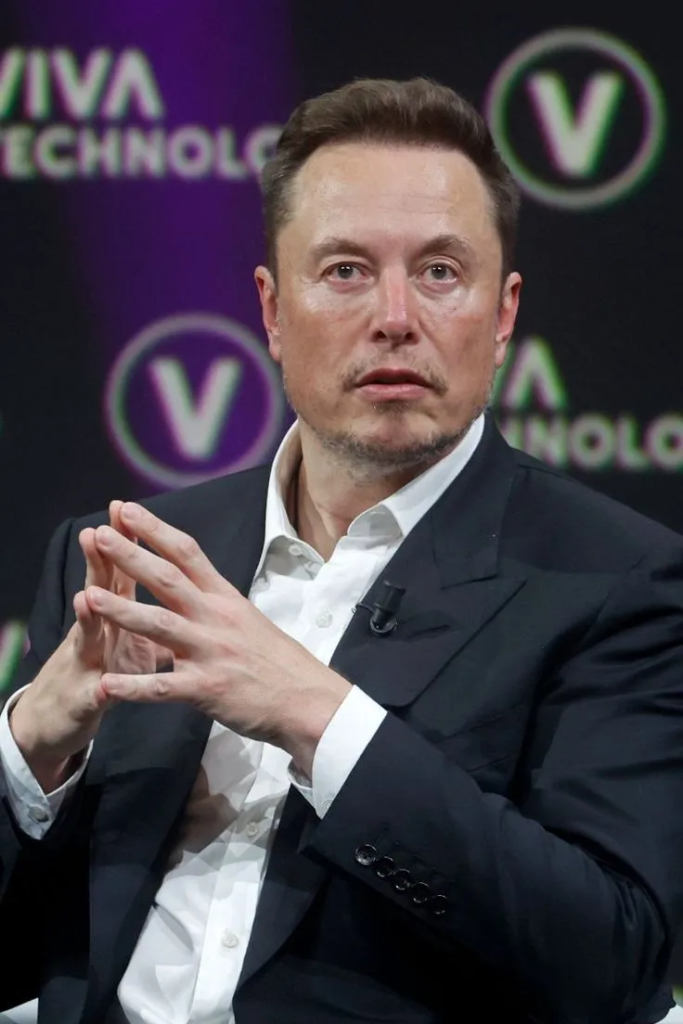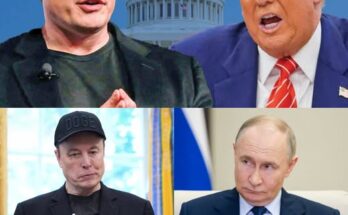Elon Musk is one of the most famous and controversial figures of our time. He is heralded as a genius by some and despised as a manipulative billionaire by others. His name sparks intense debates across social media, often fueled by contrasting perspectives on success, wealth, and personal fulfillment.
One particularly scathing critique comes from Brad Walsh, who dismisses the notion that anyone would want to be Elon Musk, arguing that Musk is miserable, unloved, and perpetually seeking escape from his own existence. Walsh’s argument challenges the traditional assumptions of success: that wealth and power inherently lead to happiness and admiration. But is there truth to this claim? Or is it merely an emotional reaction to Musk’s divisive public persona?

From an external perspective, Elon Musk appears to embody the pinnacle of success. He is one of the richest people on Earth, with ventures spanning multiple industries—Tesla, SpaceX, Neuralink, and The Boring Company, to name a few. He commands immense power, influences markets with a single tweet, and has legions of dedicated fans who see him as a visionary.
Yet, despite these achievements, Musk’s public life suggests that extreme wealth does not guarantee happiness. He has openly discussed his struggles with mental health, his use of ketamine, and the immense pressure he faces in his business ventures. His social media presence often seems erratic, riddled with controversial statements and late-night rants that hint at deeper personal unrest.
The idea that Musk is miserable is not entirely baseless. He has admitted to feeling isolated and burdened by the responsibilities of running multiple high-stakes companies. In past interviews, he has spoken about long hours, sleepless nights, and the toll that his work has taken on his personal life. His romantic relationships have been tumultuous, often making headlines for their dramatic twists and turns.
Additionally, his reported use of ketamine, a dissociative anesthetic, raises questions about how he copes with stress. While some argue that his use of the drug is medicinal, others see it as a sign of an individual seeking to numb themselves from reality. If Musk’s life was truly fulfilling, would he need such an escape?
The Question of Love and Admiration
One of Walsh’s most damning statements is that “Nobody loves him.” While this is an extreme claim, it touches on a critical aspect of human fulfillment: social connection. Wealth and status may earn admiration, but they do not necessarily foster genuine relationships. Many of Musk’s interactions with others appear transactional, particularly in the business world, where power dynamics and self-interest dominate.
Musk does have supporters—devoted fans who see him as a revolutionary leader, and employees who believe in his vision. But admiration is not the same as personal love. Musk’s personal life appears strained, and he has spoken about loneliness in various interviews. His controversial behavior on social media has also alienated many, leading to widespread criticism and backlash.
The Sociopath Argument
Another striking point Walsh makes is that Musk could not have accumulated his wealth without being a sociopath who “uses humans like batteries.” This argument reflects a broader critique of billionaires and the ethics of extreme wealth accumulation.
Musk’s success has undeniably come at a cost—long hours, aggressive business practices, and a willingness to push his employees to their limits. Tesla has faced numerous allegations of poor working conditions, union-busting efforts, and toxic workplace culture. SpaceX, while a groundbreaking company, operates with high demands and intense pressure.
Critics argue that Musk, like many billionaires, prioritizes profits and technological ambition over the well-being of the people who help build his empire. Supporters, on the other hand, argue that great innovation requires sacrifice and that Musk is merely doing what is necessary to achieve his goals. But at what cost?
Would Anyone Really Want to Be Elon Musk?
The core of Walsh’s argument is that the idea of wanting to be Musk is absurd. “You’d give anything to be him” is a statement often thrown around by Musk’s supporters, but is it true?
On paper, being Musk comes with immense advantages: influence, wealth, and the ability to shape the future. But it also comes with relentless scrutiny, high-stakes pressure, and what appears to be a lack of deep personal fulfillment. The price of Musk’s success is constant work, public criticism, and a personal life that often seems chaotic.
Most people, when asked if they would want to be Musk, might hesitate. Sure, the wealth and power are tempting, but would they trade their personal lives, friendships, and sense of self for it? If happiness and meaning are the ultimate goals in life, then perhaps Musk is not as enviable as some of his supporters claim.
The Larger Conversation: Redefining Success
Brad Walsh’s critique of Musk is not just about one man—it’s about our collective understanding of success. For decades, society has equated wealth with happiness and power with fulfillment. But Musk’s life challenges that narrative. If one of the richest and most influential people in the world still struggles with personal satisfaction, what does that say about the pursuit of extreme success?
Maybe it’s time to redefine what it means to be successful. Instead of chasing wealth at all costs, perhaps we should prioritize well-being, relationships, and a sense of purpose. Musk’s story serves as both a cautionary tale and an opportunity for reflection: Is the pursuit of greatness worth it if it comes at the expense of personal happiness?
Conclusion
Elon Musk is a complex figure—neither purely a genius nor purely a villain. He is a man who has achieved extraordinary things but at a significant personal cost. Brad Walsh’s statement, while blunt, raises important questions about the nature of success, happiness, and the societal myths we buy into.
Would you want to be Elon Musk? Or would you rather find fulfillment in a different way? The answer to that question says more about what we truly value than about Musk himself.


